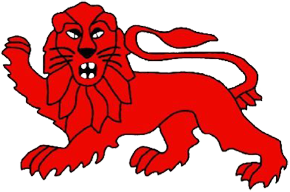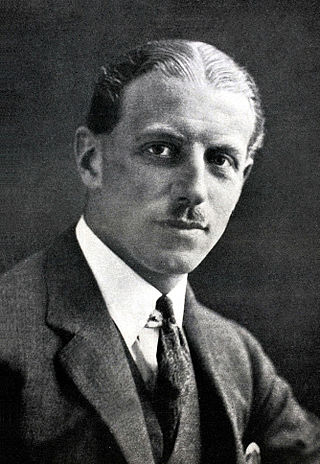Related Research Articles
First-class cricket, along with List A cricket and Twenty20 cricket, is one of the highest-standard forms of cricket. A first-class match is one of three or more days' scheduled duration between two sides of eleven players each and is officially adjudged to be worthy of the status by virtue of the standard of the competing teams. Matches must allow for the teams to play two innings each, although in practice a team might play only one innings or none at all.

Oxford University Cricket Club (OUCC), which represents the University of Oxford, has always held first-class status since 1827 when it made its debut in the inaugural University Match between OUCC and Cambridge University Cricket Club (CUCC). It was classified as a List A team in 1973 only. Home fixtures are played at the University Parks slightly northeast of Oxford city centre.

Cambridge University Cricket Club, first recorded in 1817, is the representative cricket club for students of the University of Cambridge. Depending on the circumstances of each individual match, the club has always been recognised as holding first-class status. The university played List A cricket in 1972 and 1974 only. It has not played top-level Twenty20 cricket.

Maxwell "Max" Woosnam was a British sportsman who is sometimes referred to as the 'Greatest British sportsman' in recognition of his achievements.

When the First World War ended in November 1918, thousands of Australian servicemen were in Europe as members of the First Australian Imperial Force (AIF) and many remained until the spring of 1919. In England, a new first-class cricket season was planned, the first since 1914, and an idea that came to fruition was the formation of an Australian touring side made up of servicemen. Agreement was reached with the Australian Corps HQ in London, commanded by Field Marshal William Birdwood, 1st Baron Birdwood, and the Australian Imperial Force Touring XI was formed, initially under the captaincy of pre-war Test player Charlie Kelleway. Kelleway departed after only six matches following a dispute about the fixtures list. A players' meeting elected future Test player Herbie Collins as team captain for the remainder of the tour, despite the fact that Collins' military rank was lance corporal and there were seven officers in the party. The bulk of the team remained intact for nearly nine months from May 1919, playing 33 matches in Great Britain, ten in South Africa on their way home and then another three in Australia itself before disbanding in February 1920. Of the 46 matches, 39 are adjudged first-class and the team had only four defeats, all of these in England. The players lived on their army pay and all profits from gate money went to an AIF Sports Control Board.
In English cricket, the years 1826–1845 were dominated by the roundarm bowling issue, which was resolved when the style was legalised in 1835, and by the formation of the first modern county clubs between 1839 and 1845.
The British Universities cricket team was a cricket team whose players were drawn from university students studying in Great Britain. The team played under the title of Combined Universities until 1995. The team played List A cricket from 1975 to 1998 and first-class cricket from 1993 to 2006.
The sport of association football has a long history in England.

Cricket is one of the most popular sports in England, and has been played since the 16th century. Marylebone Cricket Club, based at Lord's, developed the modern rules of play and conduct. The sport is administered by the England and Wales Cricket Board and represented at an international level by the England men's team and England women's team. At a domestic level, teams are organised by county, competing in tournaments such as the County Championship, Royal London One-Day Cup, T20 Blast and the Women's Twenty20 Cup. Recent developments include the introduction of a regional structure for women's cricket and the establishment of The Hundred for both men's and women's cricket. Recreational matches are organised on a regional basis, with the top level being the ECB Premier Leagues.

George Augustus Frederick Cavendish-BentinckPC JP, known as George Bentinck and scored in cricket as GAFC Bentinck, was a British barrister, Conservative politician, and cricketer. A member of parliament from 1859 to 1891, he served under Benjamin Disraeli as Parliamentary Secretary to the Board of Trade from 1874 to 1875 and as Judge Advocate General from 1875 to 1880.
Cricket, and hence English amateur cricket, probably began in England during the medieval period but the earliest known reference concerns the game being played c.1550 by children on a plot of land at the Royal Grammar School, Guildford, Surrey. It is generally believed that cricket was originally a children's game as it is not until the beginning of the 17th century that reports can be found of adult participation.
Claude Thesiger Ashton was an English amateur footballer and first-class cricketer. As footballer he played for Corinthians in several different positions including goalkeeper and centre forward, although his preferred position was wing-half. He made one appearance for the England national team in 1925 when he was appointed team captain. As a cricketer he played for Cambridge University and Essex. A pre-war officer of the Auxiliary Air Force, he died as a result of a mid-air collision in a training accident in the Second World War.
Combined Oxford and Cambridge Universities cricket teams were formed at intervals between 1839 and 1992, often playing against touring international teams. Mostly the team consisted of students who were current members of either Cambridge University Cricket Club or Oxford University Cricket Club, although four matches between 1874 and 1893 included past and present students. A Combined Universities side played in the Benson & Hedges Cup between 1975 and 1998. Initially this was referred to as Oxford and Cambridge Universities or Oxbridge.
John Stuart David Moffat is a former Scottish rugby union international. He also played a first-class cricket match for Cambridge University.
Christopher Gavin Benjamin is a South African cricketer who plays for Warwickshire. He made his first-class debut on 26 March 2019, for Durham MCCU against Durham, as part of the Marylebone Cricket Club University fixtures. In July 2021, he was awarded a rookie contract with Warwickshire County Cricket Club. He made his Twenty20 debut on 18 July 2021, for Birmingham Bears in the 2021 T20 Blast. He made his List A debut on 22 July 2021, for Warwickshire in the 2021 Royal London One-Day Cup.
Through the Napoleonic Wars, county cricket virtually died as cricket was impacted by losses of investment and manpower.
References
- ↑ "Benjamin Collins". ESPN Cricinfo. Retrieved 18 April 2017.